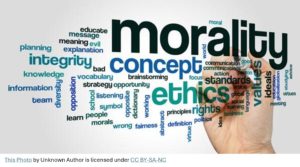It terrifies me to think we are trusting AI systems to make decisions that directly affect our lives and the societies in which we live. Large corporations are using them to screen applicants, medical and other service companies are relying on them to decide who gets to see specialists, and politicians are now using them to target messages to prospective voters. Yet almost no one is asking the underlying question and testing the systems to see whether there are unintended consequences where some will be hurt or even die as a result. Why are we trusting these systems so blindly?
Could it be that we are so tired of working hard that we just want an AI system to ease our load? Yes, they might eliminate the tedium of seemingly endlessly repetitive decisions. And, yes, when tested these AI systems typically outperform humans since they don’t get tired or moody. But just because they seem to perform well, why don’t people look at why they get things wrong and how wrong they can be?
Let’s go back to the basics of all AI to see where things can go wrong. The first step is to carefully review all of the “training data” the system is using and to be sure it is appropriate data for the questions the AI is expected to ask. There is a lot of data to review and each element of the data needs to be reviewed to see if perhaps it was collected for a different purpose than currently intended and therefore contains bias or even miscoding.
Simple tasks like speech recognition seem straightforward … did you say yes or no to the prompted question. But even here there are times when the original developers did not consider strong southern accents or voices from other nations where vowels and consonants have subtle variants. Yes and no answers are pretty safe, but let’s now consider whether the person using the system might not be truthful because they are embarrassed to admit something. Doctors have the same problem but are likely to sense that in person while over the phone they might not. Can you see how bias in a chain of simple yes and no questions could defeat the AI from diagnosing your condition?
Now, let’s take a question where ethics are involved and unstructured outcomes might be suggested. For example, I asked ChatGPT what I should do about being so distraught that I am considering suicide. It responded as follows:
“I’m really sorry you’re feeling this way, but I’m not equipped to help. It’s important to talk to a mental health professional or counselor who can provide the support you need. If you’re in immediate danger, please contact emergency services or go to the nearest emergency room.”
On one level, you have to be impressed, but anyone associated with suicide prevention would have offered better emotional support than this. If the system was not queried to see what it would say in response to a question like this, the results are unknown. Plus, the system must learn to recognize poor grammar, spelling, and possibly irrationality.
Then, you also have to check the training set for technical accuracy or as the saying goes, garbage in … garbage out. Here is ChatGPT answering how much you can save if you raise or lower your thermostat setpoint:
“Raising your thermostat by 1 degree Fahrenheit can lead to savings on your energy bills, though the exact amount varies based on factors like your home’s insulation, local climate, and the efficiency of your heating system.”
“On average, the U.S. Department of Energy estimates that for each degree you lower your thermostat in the winter (or raise it in the summer), you can save about 1% on your heating (or cooling) costs. So, if you raise your thermostat by 1 degree Fahrenheit, you might see a reduction of around 1% in your heating bill.”
These answers are completely incorrect. It does not depend upon the home’s insulation, local climate, or the efficiency of the heating system. One degree changes energy use about 7-9% on average when the system is running on a hot or a cold day. If a poor person read this they would crank the AC down to 70!
Month: September 2024
Shake It Off?
My apologies in advance that this blog appears way too long. It is because I included the lyrics to the Taylor Swift song by the same name. You may have seen some of her videos, especially the video outtakes of her production of this song using ballerinas and others who have skills Taylor clearly doesn’t have. It is of course endearing for her to admit her lack of skill. It is indeed also humbling and a bit unnerving how talented some people are at things. She is right … we shouldn’t take our lack of ability too seriously. Watch it for yourself: https://www.youtube.com/watch?v=nfWlot6h_JM&t=11s
Now, set aside the musicality and the production values and look at the words our children, especially young women are internalizing and worshiping about her in her lyrics. Plus, remember these are the words to the song which her fans have memorized:
I stay out too late
Got nothing in my brain
That’s what people say, mm-mm
That’s what people say, mm-mm
I go on too many dates
But I can’t make ’em stay
At least that’s what people say, mm-mm
That’s what people say, mm-mm
Many commentators have poked fun at Taylor over her young life for her breakups and incidents which she herself made fun of in her Saturday Night Live performance years ago:
https://www.youtube.com/watch?v=W2twcSFYlt0
You have to give her credit for resilience and her hard work, and for her success these days drawing unbelievable crowds and selling out her performances in a matter of seconds. But, I do become a bit concerned when her lyrics can influence modern impressionable youth with models for success that only she can achieve. The song continues with reasonable encouragement:
But I keep cruisin’
Can’t stop, won’t stop movin’
It’s like I got this music in my mind
Sayin’ it’s gonna be alright
‘Cause the players gonna play, play, play, play, play
And the haters gonna hate, hate, hate, hate, hate
Baby, I’m just gonna shake, shake, shake, shake, shake
I shake it off, I shake it off (hoo-hoo-hoo)
Heartbreakers gonna break, break, break, break, break
And the fakers gonna fake, fake, fake, fake, fake
Baby, I’m just gonna shake, shake, shake, shake, shake
I shake it off, I shake it off (hoo-hoo-hoo)
I’ve skipped past some repetitive verses to get to my point in this blog. Indeed there are many bad behaving men out there, but today’s young generation fails to see they are encouraging that kind of behavior in the way they dress and behave. Their sexual freedom may make them seem attractive, but it fails to bring the right men into their lives. My favorite question to my daughters was “what are you trying to tell young men about you based upon the way you are dressed?” They then put on more modest clothes. Here are the lyrics of concern:
Just think, while you’ve been gettin’ down and out about the liars
And the dirty, dirty cheats of the world
You could’ve been gettin’ down to this sick beat
My ex-man brought his new girlfriend
She’s like, “Oh my God!” but I’m just gonna shake
And to the fella over there with the hella good hair
Won’t you come on over, baby? We can shake, shake, shake (yeah)
Yeah, oh, oh
Taylor may be right in not letting others define you by their views about life. But the lyrics also point out that a shallow view of potential mates brings the wrong people into your life. Taylor may correctly advise her fans to shake off ridicule and unfair criticism, but there is a fine line between comments being unfair vs. wise counsel these days.
Perhaps then we shouldn’t be so quick to shake everything off?
Splain this one!
“No major storms have occurred in the Atlantic since mid-August, the quietest hurricane season in 56 years.” So much for the predictions that this year was going to be more active than normal. Has anyone other than me correlated the predictions of NOAH and the major universities who predict storm intensities with what actually happened that same year? Do you know what you get as a correlation coefficient when you compare predictions vs. realities?
Of course not! The fact is that the correlation coefficient is high, but it is NEGATIVE meaning that you have pretty good odds betting against these predictions! Now, don’t jump on me just yet … but do ask the natural questions this raises. Why were the predictions wrong? Were the models fed data that was estimated, and actual data would correct the predictions? Or were the predictions just wrong in all cases for “no reason?”
Plus, when you do look at the few positive correlation examples of weather over the last few decades, you see very low levels of correlation. For example, ice out contests are very common around the world where people bet on when rivers or lakes will be free of ice. So, accurate records are kept. And, when you correlate them over time you do see a small level of correlation indicating earlier ice outs in the last four decades or so have occurred slightly earlier. But it is about the same correlation coefficient as the stork population and birth rate in England. I hope I am not going too fast, but storks do not bring babies. People who do weather correlations also conveniently stop using data during the 1950s when the fear was a coming ice age. Let that one go.
My point is that the correlation coefficient being low tells you something: you haven’t found the key variable that explains variation! Nobody looks at the correlation of all this with the cleanliness of our atmosphere because of pollution controls and emission reductions resulting from the 1970 Clean Air Act. The Clean Air Act (CAA) is the comprehensive federal law that regulates air emissions from stationary and mobile sources. You never hear this mentioned in the media that reports on the alleged climate crisis. What do you think might happen if they did look at this parameter that we cleaned up the air? Isn’t it obvious that a cleaner atmosphere lets more light and heat hit the surface of the planet? Hmmm.
The root problem here is summarized in what is called confirmation bias. According to the online version of Britannica: confirmation bias is people’s tendency to process information by looking for, or interpreting, information that is consistent with their existing beliefs. This biased approach to decision making is largely unintentional, and it results in a person ignoring information that is inconsistent with their beliefs. These beliefs can include a person’s expectations in a given situation and their predictions about a particular outcome. People are especially likely to process information to support their own beliefs when an issue is highly important or self-relevant.
I still remember my business planning course professor’s statement called the Seer Sucker Theory: For every theory there is at least one sucker. And the number of people who want to profit from a belief that climate change is an existential threat are looking for confirmation that they are correct.
Well, they just got a wakeup call based on the fact we have had no major storms in the Atlantic since mid-August in a year predicted to be more active than normal.
Sustainabilty Thinking?
Trellis (the new name for GreenBiz) once again has a wonderfully interesting summary of how AI is driving the need for additional servers which of course drives the need for additional electricity. This of course drives the need for more green energy to power these servers. Doesn’t this sound like an unsustainable plan going forward?
The water cooling for these servers poses additional challenges where the cooling systems use wet cooling towers. Here is Trellis’s summary of the situation: Data centers are thirsty, and AI is making things worse
• A vast majority of data centers use water to keep servers and networking gear from overheating. In some northern climates, operators can get away with using outside air to do that job.
• 20 percent of U.S. data centers are in regions at risk of water shortages.
• Artificial intelligence is increasing that stress, and could account for 4.2 – 6.6 billion cubic meters of water withdrawal by 2027, according to October 2023 research.
Georgia, South Carolina and Virginia lawmakers have all introduced legislation that could limit data center development, due to concerns about energy and water use.
The battle between Alabama, Florida and Georgia over water is legendary: https://chattahoochee.org/case-study/tri-state-water-conflict/ Notice that the conclusion was to open up discussions and negotiate … not litigate.
So, why are we on such a mad dash for all this AI capability? It is obviously because businesses are realizing economic benefits from its use. Well, what happens when there is no more water available?
Gee, Joel, it seems everyone has put their straw in this punchbowl of opportunity and is trying to suck out as many resources as they can before they run out! Doesn’t this sound just like the whaling industry that moved from inshore whaling to offshore and then to factory ships because they wiped out the local whale populations?
Can’t we all see these as unsustainable? Doesn’t this call for some forms of least cost planning where the full societal costs are considered, along with natural constraints such as total water use?
Those of you who remember all the arguments about externalities in the electricity planning process will just shake your head in disbelief that we are now facing similar situations because of data centers … which most of you will remember were feared countless times in the past, and especially recently with the bitcoin agendas.
Is the problem just too big to tackle because water rights are so complex? Well, if so, why do we somehow think this problem is going to solve itself?
We came precariously close to a crisis in the Western US last year, which now seems to have diminished … so now we no longer work on it as if it was still important. Haven’t we learned anything from history about the ability to sustain civilizations?
Stinkin thinkin!



